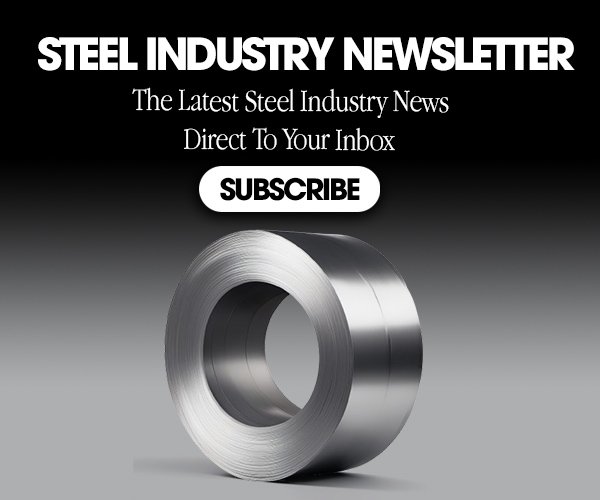President Donald Trump’s re-election in 2024 has significant implications for the US steel industry. His “America First” policies, including tariffs and trade restrictions, are expected to shape the sector’s landscape in the coming years. This article will explore the potential effects of Trump’s second term on steel production, trade, and industry dynamics, with a particular focus on tariffs and the US Steel acquisition by Nippon Steel.
Trump’s Steel Industry Agenda
President Trump’s campaign emphasized revitalizing American manufacturing, with the steel industry playing a central role in his economic vision. His re-election promises a continuation and potential expansion of policies implemented during his first term, including:
- Maintaining and possibly increasing tariffs on steel imports
- Promoting domestic steel production
- Addressing trade imbalances, particularly with China
- Potentially blocking foreign acquisitions of US steel companies
The State of the US Steel Industry
Before delving into the potential impacts of Trump’s policies, it’s crucial to understand the current state of the US steel industry:
| Metric | Value (2024) |
|---|---|
| Annual Steel Production | 86 million metric tons |
| Steel Industry Employment | 85,300 workers |
| Steel Imports | 26 million metric tons |
| Steel Exports | 7 million metric tons |
Tariffs and Trade Policy
One of the most significant aspects of Trump’s steel industry policy is the continuation and potential expansion of tariffs on steel imports. During his first term, Trump implemented a 25% tariff on most steel imports under Section 232 of the Trade Expansion Act of 1962, citing national security concerns 1.
Potential Effects of Continued Tariffs:
- Domestic Price Increases: Tariffs may lead to higher domestic steel prices, benefiting US producers but potentially increasing costs for steel-consuming industries1.
- Reduced Imports: The 25% tariff is likely to continue suppressing steel imports, creating opportunities for domestic producers to increase market share 1.
- Trade Tensions: Continued tariffs may exacerbate trade tensions with major steel-exporting countries, potentially leading to retaliatory measures 2.
- Global Market Distortions: As the US market becomes less accessible, global steel trade flows may shift, potentially leading to oversupply in other markets 2.
The US Steel Acquisition by Nippon Steel
A major point of contention in Trump’s steel industry policy is the proposed acquisition of US Steel by Japan’s Nippon Steel. Trump has vowed to block this deal, citing national security concerns and the importance of maintaining US ownership of strategic assets 4.
Potential Outcomes:
- Blocked Acquisition: If Trump successfully blocks the deal, it could deter future foreign investments in the US steel sector 4.
- Renegotiation: The deal might be renegotiated to address national security concerns, potentially involving partial US ownership or other concessions 4.
- Legal Challenges: Blocking the acquisition could lead to legal challenges, potentially involving international trade agreements 4.
- Industry Consolidation: If the deal is blocked, it may spur domestic consolidation within the US steel industry 4.
Impact on Steel Production and Employment
Trump’s policies are likely to have significant effects on US steel production and employment:
| Scenario | Potential Production Change | Potential Employment Change |
|---|---|---|
| Tariffs Maintained | +5-10% | +3-5% |
| Tariffs Increased | +10-15% | +5-8% |
| Nippon Steel Deal Blocked | +2-5% | +1-3% |
These projections are based on industry analyses and historical trends, but actual outcomes may vary depending on global economic conditions and other factors 3.
Effects on Steel-Consuming Industries
Potential 200% Tariff on John Deer
In September 2024, during a policy roundtable in Pennsylvania, Trump issued a stark warning to John Deere, threatening to impose a 200% tariff on the company if it proceeded with plans to move some of its production to Mexico 1. This threat came in response to John Deere’s announcement of relocating certain manufacturing operations from Iowa to Mexico, which had resulted in job losses in the United States
While Trump’s policies may benefit steel producers, they could have mixed effects on industries that rely heavily on steel:
- Automotive: Higher steel prices could increase production costs, potentially affecting vehicle prices and sales 5.
- Construction: The construction industry may face higher material costs, potentially slowing growth in commercial and residential building 5.
- Energy: Oil and gas companies may see increased costs for pipelines and drilling equipment 5.
- Manufacturing: Various manufacturing sectors could face higher input costs, potentially affecting their global competitiveness 5.
Global Trade Implications
Trump’s steel policies are likely to have far-reaching effects on global steel trade:
- Shift in Trade Flows: As the US market becomes less accessible, steel-exporting countries may seek alternative markets, potentially leading to increased competition in other regions 2.
- Retaliatory Measures: Countries affected by US tariffs may implement their own trade barriers, potentially escalating into broader trade conflicts 2.
- WTO Challenges: Trump’s steel tariffs may face continued challenges at the World Trade Organization, potentially leading to rulings against the US 2.
Environmental and Technological Considerations
Trump’s focus on revitalizing traditional steel production may have implications for environmental policies and technological innovation in the industry:
- Environmental Regulations: There may be a relaxation of environmental regulations affecting steel production, potentially conflicting with global climate goals 6.
- Green Steel Initiatives: The emphasis on traditional production methods may slow the adoption of “green steel” technologies in the US 6.
- Innovation and Competitiveness: While protecting the domestic industry, Trump’s policies may inadvertently slow technological innovation, potentially affecting long-term global competitiveness 6.
Regional Economic Impacts
The effects of Trump’s steel policies are likely to vary across different regions of the United States:
| Region | Potential Impact |
|---|---|
| Rust Belt | Positive – Increased production and employment |
| Coastal Areas | Mixed – Higher costs for steel-consuming industries |
| Southern States | Positive – Growth in newer steel production facilities |
Long-Term Industry Outlook
While Trump’s policies may provide short-term benefits to the US steel industry, the long-term outlook remains complex:
- Global Competitiveness: Protectionist policies may shield the industry from foreign competition in the short term but could affect long-term global competitiveness 7.
- Technological Advancement: The focus on traditional production methods may slow the adoption of new technologies, potentially affecting future efficiency and competitiveness 7.
- Market Distortions: Continued intervention in the steel market may lead to inefficiencies and misallocation of resources over time 7.
- Trade Relationships: Prolonged trade tensions could have lasting effects on international trade relationships and global supply chains 7.
Conclusion
President Trump’s re-election and his steel industry policies promise significant changes for the US steel sector. While domestic producers may benefit from continued protection and support, the broader economic implications are complex and multifaceted. The potential blocking of the Nippon Steel acquisition of US Steel underscores the administration’s commitment to maintaining domestic control of strategic industries. As these policies unfold, it will be crucial to monitor their effects on domestic steel production, employment, trade relationships, and the competitiveness of steel-consuming industries. The long-term success of these policies will depend on their ability to balance short-term industry support with the need for innovation, efficiency, and global competitiveness in an increasingly interconnected world economy.
If you enjoyed this article about U.S. Steel and Nippon Steel check out some of our other articles on the subject:
Kamala Harris Opposes Nippon Steel Acquisition of U.S. Steel
U.S. Steel-Nippon Steel Merger: Arbitration Looms as Global Hurdles have Cleared
U.S. Steel “Corrects the Record” on Transaction with Nippon Steel
EU Approves Nippon Steel – U.S. Steel Acquisition, US DOJ Review Ongoing
Nippon Steel U.S. Steel Acquisition Update
Automakers Challenge Potential Cleveland-Cliffs-U.S. Steel Merger
Nippon Steel Determined to Acquire U.S. Steel Despite Scrutiny
Biden and Trump Oppose Nippon Steel’s U.S. Steel Acquisition
U.S. Steel Acquisition: Nippon Embraces USW Challenge
Be sure to subscribe to the free Steel Industry Newsletter below for the latest steel related news direct to your inbox!
By subscribing you agree to our Terms of Use, our Privacy Policy and our Information collection notice










